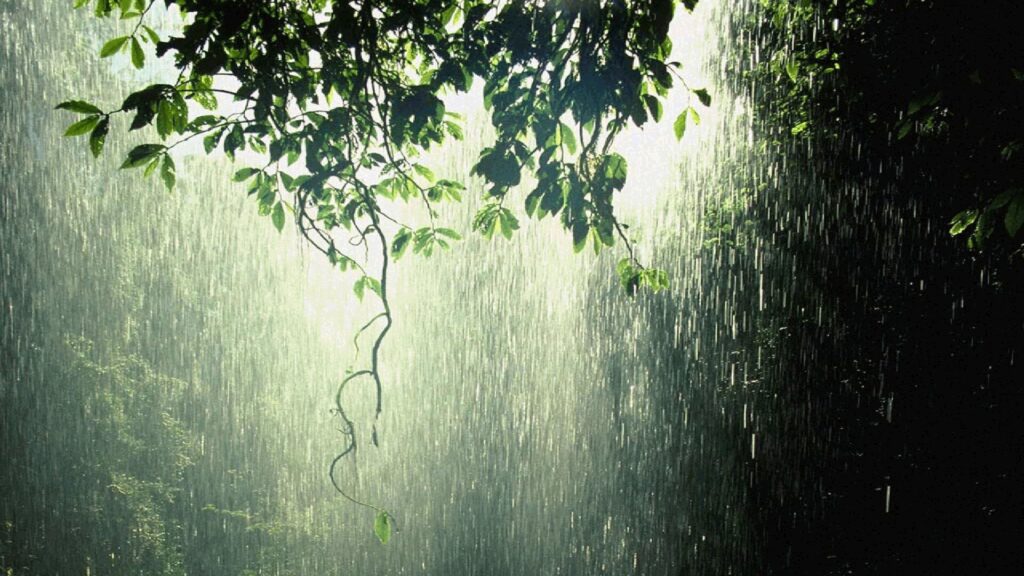Dua For Rain – A Spiritual Remedy In Times Of Drought!
Rain is one of the most essential blessings of life, and in Islam, it holds deep spiritual meaning. When the skies stay clear for too long and drought begins to affect the land, Muslims turn to Allah with a sincere heart and make Dua for Rain. This special prayer is more than just a request for water—it’s a reflection of faith, humility, and trust in the mercy of Allah. From the time of the Prophet Muhammad (PBUH) until today, making Dua for Rain has remained a powerful act of worship during dry seasons.
Dua for Rain is a special prayer in Islam made to ask Allah for rain during times of drought. It reflects faith and reliance on Allah’s mercy. Muslims recite specific supplications, trusting that Allah will respond with His infinite wisdom and kindness.
In this article, we will explore the significance, method, and spiritual value of Dua for Rain in Islam.
What Is a Dua?
A dua is a personal prayer. It’s not a ritual—it’s a conversation. Muslims turn to Allah during good times and hard times, and making dua for rain is a heartfelt plea for something as basic—and as vital—as water.
Understanding the Importance of Rain in Islam!
1. Rain as a Blessing:
Rain isn’t just about water. In Islam, it’s a direct blessing from Allah. It’s mentioned repeatedly in the Quran as a sign of divine mercy.
2. Rain as a Mercy:
Rain quenches the thirst of not only humans but also animals and plants. It nourishes the earth. So when we ask through dua for rain, we’re asking for mercy that benefits every living being.
The Concept of Istisqa – The Prayer for Rain!
Salat al-Istisqa is a special prayer that the Prophet Muhammad (PBUH) taught to his followers during times of drought. It’s not just a regular prayer for rain but a way of showing complete submission to Allah. This prayer was meant to help the community come together in humility and seek Allah’s mercy when there was a lack of rain. The Prophet (PBUH) would gather his companions and the people of the community, leaving their homes and praying in a way that showed their need for Allah’s help.

One famous narration from Sahih Bukhari describes how the Prophet (PBUH) would raise his hands to the sky during this prayer, asking Allah sincerely for rain. His dua was so heartfelt and genuine that, in one instance, clouds began to form in the sky even before the people had finished their gathering. To perform Salat al-Istisqa, the prayer is done just like the Eid prayer, with two rakats.
Dua for Rain in the Modern World!
- Climate change is causing more droughts in many areas.
- People are praying for rain as a way to ask for help during these dry times.
- It’s important to combine prayer with practical actions, like using water-saving systems.
- While we take steps to save water, we should also remember to pray for rain.
- Balancing actions and prayer is key to coping with droughts.
- Asking for rain through dua is both a spiritual and practical response.
- Remember, faith and actions together can make a difference.
Commonly Recited Dua for Rain!
1. Arabic Text of the Dua for Rain:
اللَّهُمَّ اسْقِنَا غَيْثًا مُغِيثًا، مَرِيئًا، مَرِيعًا، نَافِعًا غَيْرَ ضَارٍّ، عَاجِلًا غَيْرَ آجِلٍ
2. English Translation and Meaning:
“O Allah, give us a beneficial rain, quick and not delayed, soothing and nourishing, not harmful.”
Saying this dua for rain connects us to the tradition of the Prophet (PBUH) and reminds us to always trust in Allah’s timing.
3. When to Recite the Dua for Rain:
It can be recited following Salat al-Istisqa, any required prayer, or during private prayer. The key is sincerity.
4. Sunnah Guidelines While Making Dua for Rain:
Raise your hands, face the Qibla, and even turn your cloak inside out—symbolizing your desperate need and hope for change.
Stories from Islamic History!
A man came before the Prophet Muhammad (PBUH) pleading for rain during a period of drought. The Prophet (PBUH) responded by raising his hands in dua, pleading with Allah to provide rain. Amazingly, rain began to fall shortly after, to the point where the same guy came a week later and begged the Prophet (PBUH) to stop the rain since it had gotten too heavy. This tale demonstrates the effectiveness of the Prophet’s intercession.. Similarly, other companions of the Prophet, such as Umar ibn al-Khattab, also sought Allah’s mercy through the intercession (wasilah) of the Prophet’s uncle, Abbas. This act emphasizes the deep sense of unity and trust the early Muslim community had in turning to Allah in times of need, demonstrating how their faith and collective connection to Allah were central to their daily lives and challenges.
Read: Statesman Nyt Crossword – The Ultimate Guide To Solving The Clue!
Powerful Times and Methods to Make Dua!
1. Best Times for Acceptance:
- Before Fajr
- While fasting
- After obligatory prayers
- During rainfall itself.
These are great moments to say dua for rain and trust that Allah hears you.
2. Best Practices While Making Dua:
Face the Qibla, raise your hands, be sincere, use Allah’s names, and never lose hope.
Tips to Teach Children the Dua for Rain!
- Use short phrases to help children learn better.
- Teach children the Arabic dua for rain.
- Explain the meaning of the dua in simple words.
- Draw pictures of clouds to show what rain looks like.
- Discuss the rain cycle and how rain forms.
- End the lesson by saying a heartfelt dua for rain together.
The Spiritual Benefits of Asking for Rain!
When we turn to Allah for even the smallest of needs, we keep our connection with Him strong. Every time we make a dua, such as asking for rain, it deepens our bond with Allah. This simple act of seeking help from Him, whether it’s for something big or small, reminds us that we rely on His mercy and guidance in every part of our lives. Asking for rain may seem like a small request, but it’s an opportunity to strengthen our relationship with Allah, showing that we trust Him in all matters, big and small. The more we turn to Him, the more our hearts are reminded of His presence and care for us.

Sometimes, the rain doesn’t come as quickly as we expect. But in those moments, we learn valuable lessons about patience and trust in Allah’s timing. Each day without rain teaches us to be patient, knowing that Allah has a plan for us, and that everything happens at the right time. Even when we don’t get what we ask for immediately, we grow stronger in our faith, understanding that our needs will be met in the best way, according to Allah’s will. These moments of waiting help us become more united in faith, trusting that Allah’s wisdom is always greater than our own.
Avoiding Sins That Prevent Rain!
1. What the Prophet (PBUH) Taught:
He warned that sins can block blessings. So if dua for rain isn’t answered, it’s time to repent.
2. Community Reflection and Repentance:
Repentance clears the heart—and the skies. Let us purify our actions and create space for the rain.
Read: Ancient Grain In A Healthy Cereal Nyt – A Comprehensive Guide!
FAQs:
1. Can I make dua for rain alone at home?
Yes, you can. While collective prayer is encouraged, individual dua for rain is always heard by Allah.
2. Is there a certain time to offer up the rain prayer?
Preferably after obligatory prayers, during sujood, or before Fajr. But any time is a good time.
3. Does the Quran mention rain and dua?
Yes, several verses link rain with mercy and forgiveness, especially in Surah Nuh.
4. Can children join Salat al-Istisqa?
Absolutely! It’s a beautiful way to involve them in faith and teach them about dua for rain.
5. What if rain doesn’t come after the dua?
Be patient. Allah answers in His own time and way. Keep praying, keep hoping.
Conclusion:
Rain is a symbol of life. And when the clouds stay away, we don’t just look to the skies—we talk to the One above them. Making dua for rain is more than a tradition—it’s a deep act of faith, humility, and hope. Let’s never underestimate the power of prayer, especially when it brings life to dry lands and hearts.
Also Read:
- Silly Wankok – The Internet’s Latest Sensation!
- Seo Services Businessnewstips Uk – The Key To Online Success!
- Lesbufy – A Revolutionary Tool In Today’s Digital Landscape!
- Apple Teleportation Device – Exploring Fact, Fiction, And Possibilities!
- Argyle Middle School Principal Dies – Remembering Scott Gibson!



































































Post Comment